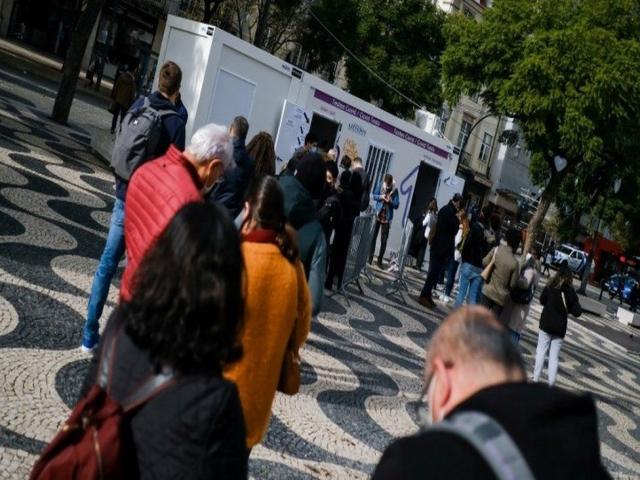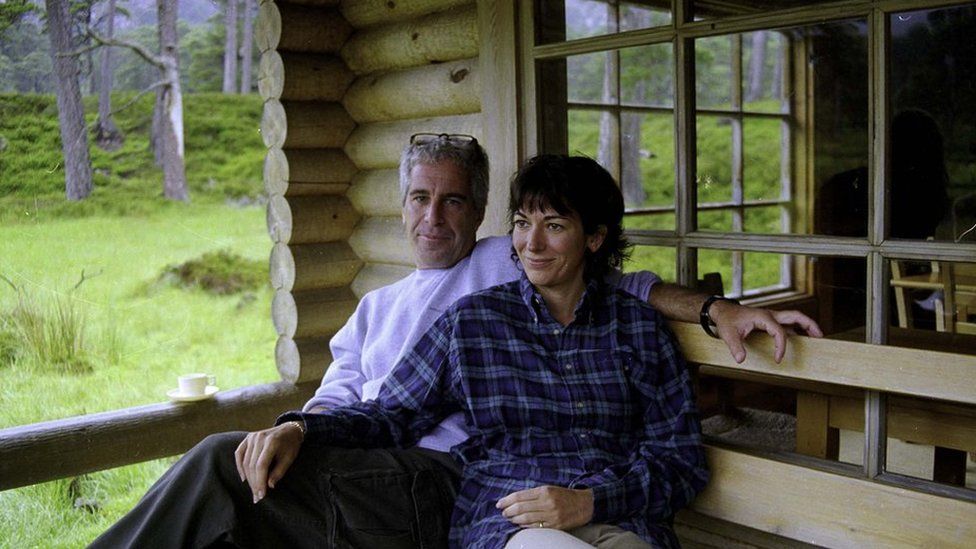Covid Omicron: European nations reinstate restrictions

Germany and Portugal are among nations announcing post-Christmas curbs and greater social distancing measures.
Omicron is already the dominant strain in many European countries.
Spain has reported its highest number of daily cases since the start of the pandemic and France has warned daily cases there could soon pass 100,000.
French Health Minister Olivier Véran said the increase in daily infections in the country, currently at about 70,000, would be driven by the Omicron variant, which he said was likely to become the dominant variant by early January.
Read the latest: Coronavirus live updates
The surge in cases across Europe will push health systems towards the brink of collapse, the World Health Organization's top official in the continent has warned.
Hans Kluge said "another storm" was coming and governments should brace for significant increases in cases.
France began vaccinating children between the ages of five and 11 on Wednesday, but said that boosters were not currently being offered to 12 to 15-year-olds.
Germany announced that from 28 December limits would return that restrict private gatherings to 10 people and nightclubs would close. Football matches from that date will also be played behind closed doors.
"Coronavirus doesn't take a Christmas break," Germany's Chancellor Olaf Scholz said on Tuesday.
"We cannot - and must not - close our eyes to this next wave, which is beginning to loom over us," he added.
Meanwhile, Portugal ordered bars and nightclubs to shut from 26 December, and made working from home obligatory from that date until 9 January. Outdoor gatherings will be limited to 10 people.
Bars and restaurants in Finland will have to close at 22:00 on 24 December, as the Nordic nation sees infections at a record level. For three weeks from 28 December, restaurants will have to close at 18:00 with limited seating. Travellers coming from the EU's border-free Schengen zone will have to show a negative Covid test.
Covid map: Where are cases the highest?
How can I tell I have Omicron?
Do vaccines work against Omicron?
In the UK, Health Secretary Sajid Javid has announced that people infected with Covid in England will be able to end quarantine after seven days instead of 10 if they test negative on days six and seven.
Prime Minister Boris Johnson earlier ruled out any new restrictions for England before Christmas, but Scotland, Wales and Northern Ireland have all announced curbs on social mixing.
In Sweden, bars, cafes and restaurants will only be able to serve seated guests from Wednesday, and people are being asked to work from home if possible.
Health Minister Lena Hallengren said she expected Omicron cases to rise and warned the "the burden on the health care system is increasing".
The Netherlands has already brought in tighter restrictions, announcing a strict lockdown on Monday, but BBC Europe correspondent Nick Beake says other European leaders want to delay tighter controls until after the festive period if possible.
On Tuesday, Spain reported a record 49,823 new daily infections - the previous record was 44,357, which was reported in January. Prime Minster Pedro Sánchez is meeting regional leaders to discuss implementing new restrictions.
Europe has already seen more than 89 million cases and 1.5 million Covid-related deaths, according to the latest EU figures.
Germany and Portugal are among nations announcing post-Christmas curbs and greater social distancing measures.
Omicron is already the dominant strain in many European countries.
Spain has reported its highest number of daily cases since the start of the pandemic and France has warned daily cases there could soon pass 100,000.
French Health Minister Olivier Véran said the increase in daily infections in the country, currently at about 70,000, would be driven by the Omicron variant, which he said was likely to become the dominant variant by early January.
Read the latest: Coronavirus live updates
The surge in cases across Europe will push health systems towards the brink of collapse, the World Health Organization's top official in the continent has warned.
Hans Kluge said "another storm" was coming and governments should brace for significant increases in cases.
France began vaccinating children between the ages of five and 11 on Wednesday, but said that boosters were not currently being offered to 12 to 15-year-olds.
Germany announced that from 28 December limits would return that restrict private gatherings to 10 people and nightclubs would close. Football matches from that date will also be played behind closed doors.
"Coronavirus doesn't take a Christmas break," Germany's Chancellor Olaf Scholz said on Tuesday.
"We cannot - and must not - close our eyes to this next wave, which is beginning to loom over us," he added.
Meanwhile, Portugal ordered bars and nightclubs to shut from 26 December, and made working from home obligatory from that date until 9 January. Outdoor gatherings will be limited to 10 people.
Bars and restaurants in Finland will have to close at 22:00 on 24 December, as the Nordic nation sees infections at a record level. For three weeks from 28 December, restaurants will have to close at 18:00 with limited seating. Travellers coming from the EU's border-free Schengen zone will have to show a negative Covid test.
Covid map: Where are cases the highest?
How can I tell I have Omicron?
Do vaccines work against Omicron?
In the UK, Health Secretary Sajid Javid has announced that people infected with Covid in England will be able to end quarantine after seven days instead of 10 if they test negative on days six and seven.
Prime Minister Boris Johnson earlier ruled out any new restrictions for England before Christmas, but Scotland, Wales and Northern Ireland have all announced curbs on social mixing.
In Sweden, bars, cafes and restaurants will only be able to serve seated guests from Wednesday, and people are being asked to work from home if possible.
Health Minister Lena Hallengren said she expected Omicron cases to rise and warned the "the burden on the health care system is increasing".
The Netherlands has already brought in tighter restrictions, announcing a strict lockdown on Monday, but BBC Europe correspondent Nick Beake says other European leaders want to delay tighter controls until after the festive period if possible.
On Tuesday, Spain reported a record 49,823 new daily infections - the previous record was 44,357, which was reported in January. Prime Minster Pedro Sánchez is meeting regional leaders to discuss implementing new restrictions.
Europe has already seen more than 89 million cases and 1.5 million Covid-related deaths, according to the latest EU figures.
?file=BBC_World_1995.jpg)
Covid: New Plan B rules on working from home and masks announced for England
- People in England are being asked to work from home again if possible and face masks will be compulsory in most public places, as part of new rules to limit

Boris and Carrie Johnson announce birth of baby daughter
- Prime Minister Boris Johnson is joined by his wife Carrie on stage after delivering his keynote speech at the Conservative Party

Ghislaine Maxwell: Ex-boyfriend of Maxwell accuser backs up statement
- The ex-boyfriend of an accuser in Ghislaine Maxwells sex crimes trial has given testimony that she performed sex acts on paedophile Jeffrey Epstein.

Covid: Two cases of new variant Omicron detected in UK
- Two people in the UK have been found to be infected with the new Covid variant, Omicron, the health secretary has said.